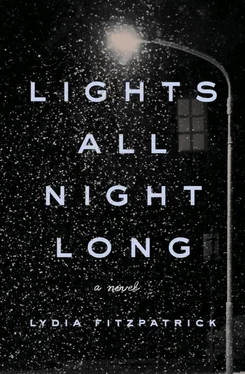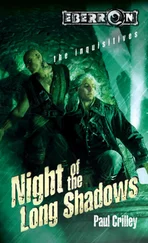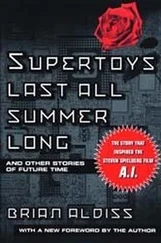Lydia Fitzpatrick - Lights All Night Long
Здесь есть возможность читать онлайн «Lydia Fitzpatrick - Lights All Night Long» весь текст электронной книги совершенно бесплатно (целиком полную версию без сокращений). В некоторых случаях можно слушать аудио, скачать через торрент в формате fb2 и присутствует краткое содержание. Город: New York, Год выпуска: 2019, ISBN: 2019, Издательство: Penguin Press, Жанр: Современная проза, на английском языке. Описание произведения, (предисловие) а так же отзывы посетителей доступны на портале библиотеки ЛибКат.
- Название:Lights All Night Long
- Автор:
- Издательство:Penguin Press
- Жанр:
- Год:2019
- Город:New York
- ISBN:978-0-52555-873-6
- Рейтинг книги:3 / 5. Голосов: 1
-
Избранное:Добавить в избранное
- Отзывы:
-
Ваша оценка:
- 60
- 1
- 2
- 3
- 4
- 5
Lights All Night Long: краткое содержание, описание и аннотация
Предлагаем к чтению аннотацию, описание, краткое содержание или предисловие (зависит от того, что написал сам автор книги «Lights All Night Long»). Если вы не нашли необходимую информацию о книге — напишите в комментариях, мы постараемся отыскать её.
Lights All Night Long — читать онлайн бесплатно полную книгу (весь текст) целиком
Ниже представлен текст книги, разбитый по страницам. Система сохранения места последней прочитанной страницы, позволяет с удобством читать онлайн бесплатно книгу «Lights All Night Long», без необходимости каждый раз заново искать на чём Вы остановились. Поставьте закладку, и сможете в любой момент перейти на страницу, на которой закончили чтение.
Интервал:
Закладка:
Two kilometers from town was a crescent-shaped complex of six huge kommunalkas, which had been built for the coal miners and their families. When the mine collapsed, the families stayed, without their miners. This was before perestroika, when living in a place was the closest you could come to owning it, and Ilya’s family had lived there for half a century without ever believing it their own.
On the west side, the kommunalkas overlooked the remains of the mine, and, on the east, the remains of the camp, where the cells and the guard towers crumbled slowly, where crosses had been staked in the ground. In winter, snow fell, and people measured its depth by how much of the cross it swallowed. If it only reached the footrest, the winter would be mild. If it reached the higher crossbeam, the winter would be long. To the north, across the river, the refinery jutted into the sky, smoke heaving from its towers. Ilya’s mother worked in the cafeteria at the refinery, and she moaned sometimes about the poison it was spewing and the cancers that were sure to result, but Ilya was mesmerized by it. Electricity in the kommunalkas could not be counted on, but the refinery’s lights shone all night long. Like a city, like places Ilya had seen on TV. Moscow or Times Square or a space station. A patch of some other world stitched into Berlozhniki’s horizon by mistake.
Ilya’s family lived in Building 2, which was considered the best by practical people because it was closest to the road into town and the worst by spiritual people because in the ’70s two brothers had jumped off the roof. Their apartment was one of a dozen on the eighth floor. All the floors were identical except for the color of paint used in the long, low hallways, so they came to be known by colors instead of numbers. Ilya’s floor was zhelty, a bright yellow that had dirtied over time to mustard. At the head of each hallway was a shared kitchen—though most of the residents had acquired tiny electric stoves—and at the end of each hallway was a shared bathroom. Before he died, Ilya’s father would wake in the middle of the night and trudge down the hall just to take a shit in peace. Vladimir had reported this fact to Ilya. All Ilya remembered of his father was a pair of dark, expressive eyebrows, and the thrill he’d get when his father flipped him over and pretended that a piece of candy had fallen out of his hair.
Their apartment was tiny: a bedroom that Ilya’s mother and grandmother shared, and a living room where Vladimir and Ilya slept head-to-toe on a pull-out couch. The walls were crisscrossed with water pipes and studded with radiators. Above the couch hung a painting of a mother and child mushroom hunting that had been prized for its innocuousness long enough to become loved for its familiarity. There were striped curtains and a plaid tablecloth and mismatched floral cushions on each of the kitchen chairs. The woodstove was used for storage, and the red corner was papered with worker propaganda. When the shift occurred, Babushka had tacked a laminated icon right on top of Gorbachev’s portrait. She’d only used one pin, so it could be quickly removed if things shifted again, but it had been there for Ilya’s whole life: Jesus on the cross, the plastic clouded with grease, Gorbachev’s birthmark half visible over the thorny crown.
Ilya was the younger son, without much to distinguish him from his brother but a chipped front tooth and a lopsided sag to his shoulders. The tooth was a mystery, but the shoulder sagged because his collarbone had broken during birth and never healed properly. He had been born in ’93, when Yeltsin was impeached, and tanks were shelling the White House. His mother said that the doctor had been listening to Echo of Moscow, to Rutskoy as he pleaded with the air force to bomb the Kremlin, and that in the excitement of it all he’d gripped Ilya’s shoulders a bit too hard with the forceps. She said that she could still hear the snap. “Like a nut cracking,” she’d say, with the same wince every time, because Ilya’s pain was intertwined with her own. But the kids in the kommunalkas had a different story: “Your mama’s a bone breaker. Tight enough to crush a man,” they whispered, until the day Vladimir overheard and threatened to crack each of their collarbones one by one.
When Ilya was little, he was happy to be like Vladimir. Happy to have the same buzz cut, to wear Vladimir’s old snowsuits, which were too small in the waist and too long in the leg. Happy to time Vladimir skating up and down the Pechora on a knockoff Timex and to diligently log Vladimir’s times in a notebook, though they never really improved. When he was little, Ilya treated school like Vladimir treated school: as time spent dreaming up things to do when not in school. He learned to read from Vladimir’s comic books and hockey magazines, his chin hooked over Vladimir’s shoulder. Ilya was an observer and a mimic, Vladimir a natural performer who never seemed to mind the force of Ilya’s attention, though he did, from time to time, take advantage of it. Afternoons, when they were walking home from school, he’d ask Ilya to steal Fantas from the Minutka, and Ilya would stuff them under his sweater without a second thought. Once, ancient Anatoly, who worked the register, caught him and made him spend the day unloading beer crates as punishment. Ilya stole two beers to make up for the lost Fantas, and Vladimir accepted these as though they were his due.
When Vladimir and his best friend, Sergey, clung to the back of the #33 bus, the one that took the neftyaniki out to the refinery, Ilya clung to the back too. They would jump off just before the gates in snow that came up to Ilya’s knees. Everything—the snow, their skin—was blue-tinged by the refinery’s light. Vladimir and Sergey dragged sticks along the chainlink fence, which seemed so high that it even segmented the sky, and when they were far enough from the road, they took turns flicking matches through the fence and watching them burn little holes in the snow. They circled the refinery slowly, like sharks might, looking for a break in the fence, and inevitably Vladimir and Sergey began trading stories of Fyodor Fetisov, the oligarch who owned it all.
“Once,” Vladimir said, “he took a bath in beluga.”
“With two prostitutes,” Sergey said.
“That each cost two million rubles a night,” Ilya added, because this detail had stuck with him. Two million rubles was more than a thousand Fantas. Two million rubles could probably buy the Minutka and everything inside it.
“That’s right,” Vladimir said. “And they had on thongs made of gold.”
“And diamonds for nipples,” Sergey said. They all went silent for a moment at the power of this image. “He can do whatever the fuck he wants with them. Anything,” Sergey said, with a cruelness that sometimes surfaced in Sergey and that made Ilya wish it were just Vladimir and him leaning against the fence.
“Where does he live? On the square?” Ilya said.
Vladimir and Sergey looked at each other and laughed.
“He doesn’t live here ,” Vladimir said. “He’s probably been here once, to cut the ribbon.”
“No one lives here,” Sergey said.
“Not even the prostitutes?” Ilya asked.
“Ilyusha,” Vladimir laughed, “I like the way you think.”
When it was too cold to be outside, Ilya and Vladimir watched movies. Vladimir was obsessed with American movies, and Ilya liked them because Vladimir did. The pure action movies were Vladimir’s favorites—anything with Jean-Claude Van Damme or Bruce Willis, anything with roundhouse kicks and explosions and sparse dialogue—but he would settle for badly dubbed dramas or sitcoms with too-loud laugh tracks or whatever Kirill the cranky Chechen was hawking at the Internet Kebab. The movies were all a decade old. The tapes were all bootleg.
Читать дальшеИнтервал:
Закладка:
Похожие книги на «Lights All Night Long»
Представляем Вашему вниманию похожие книги на «Lights All Night Long» списком для выбора. Мы отобрали схожую по названию и смыслу литературу в надежде предоставить читателям больше вариантов отыскать новые, интересные, ещё непрочитанные произведения.
Обсуждение, отзывы о книге «Lights All Night Long» и просто собственные мнения читателей. Оставьте ваши комментарии, напишите, что Вы думаете о произведении, его смысле или главных героях. Укажите что конкретно понравилось, а что нет, и почему Вы так считаете.












